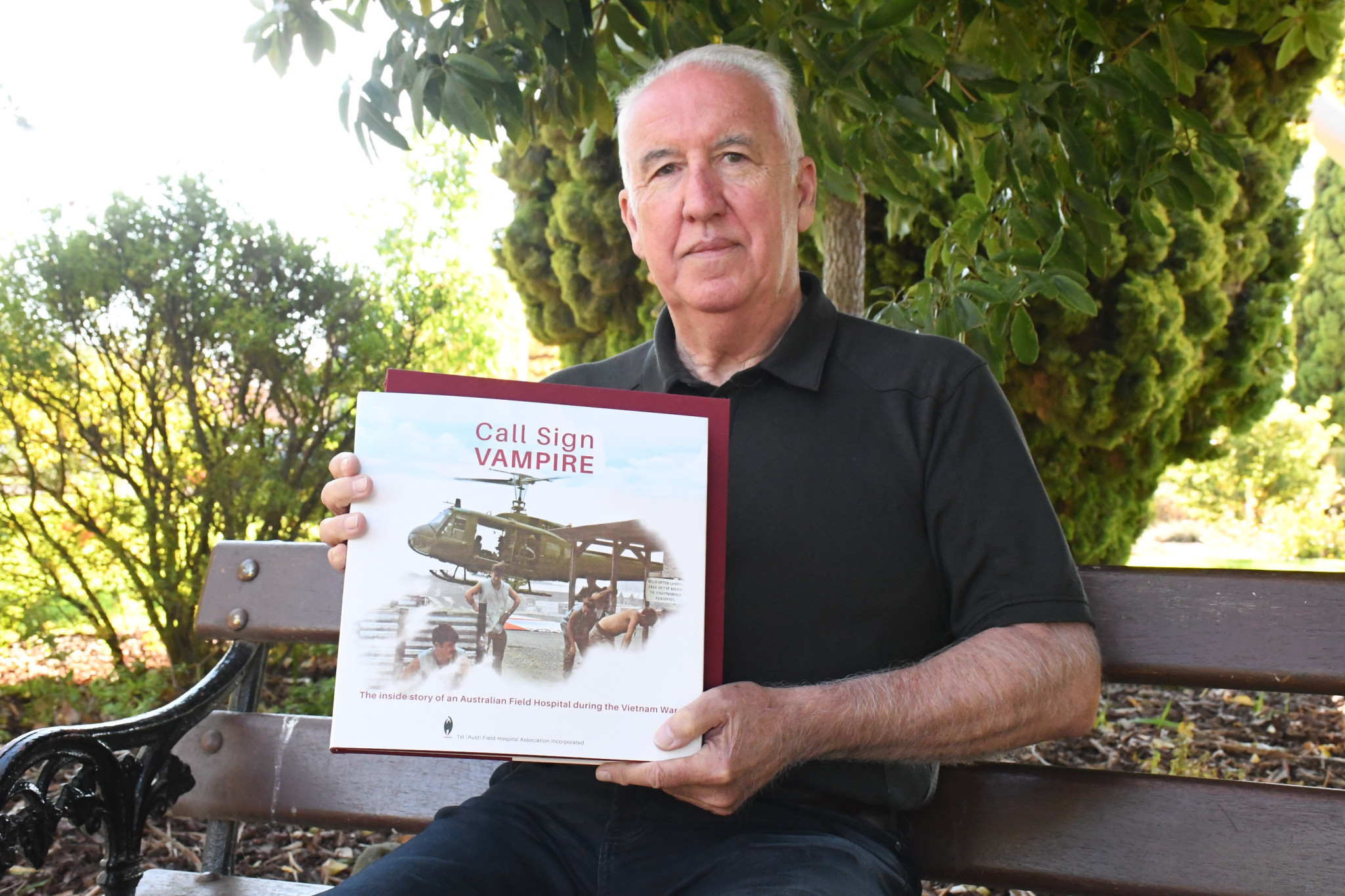General News
25 April, 2025
Book details first field hospital
The lived experiences of those at the First Australian Field Hospital in the Vietnam War have been immortalised in a compelling anthology.

Call sign VAMPIRE contains the confronting personal accounts from both those who worked there, patients and even civilians.
Maryborough resident Greg Anderson co-wrote and co-editored the book when a former neighbour, a member of the First Australian Field Hospital Association, wanted to start a project sharing untold stories from veterans who were there.
Upon looking at the source material provided to them, the project became much bigger than expected.
“It took us about two years overall to put together, a lot of the stories were provided by ex-members of the association, as were the photos,” he said.
“Their idea was a pamphlet of untold stories, but they didn’t realise how broad it would be.”
Many of the photos published in the book had also never been seen by the public.
“Some photos we also sourced from the War Memorial in Canberra, and we were given access to a private collection,” Mr Anderson said.
“With the assistance of a grant towards the production, we were really able to pay homage to those stories that have been provided.”
Located in Vung Tau South Vietnam, operating from 1968 until 1971, the field hospital had an accompanying helipad known as Vampire after it’s radio call sign.
Completed in 2021, the book traces the journey from arrival through to triage, followed by chapters on theatre wards, doctors, nurses, medics, outpatients, psy-chiatry, pathology, x-ray, physio-therapy, pharmacy and dental.
“98.6 per cent of injured people that arrived to Vampire, came out alive,” Mr Anderson said.
“When we got very rough stories, reminiscences and experiences provided, we wanted to articulate what they were trying to express and publish it in a way that was true to what they presented.”
Many of the photos provided were even colourised, creating an even more inversive reading experience.
“It was a process itself compiling all of that raw material, and to present it in a format that involved the reader, and had them going on that journey, which is why the book is structured the way that it is,” Mr Anderson said.
He said the anthology differs from many other war recounts due to its specific focus.
“It’s about the people, rather than the actual war, including those that not went into battle but were servicing those who did,” Mr Anderson said.
The book concludes with an honour roll of all those who served with the First Australian Field Hospital and its co-located units.
“It is very rare to get a complete view of what it was like to be in a war zone where it is not focused on the actual carnage of war, but the actual challenge of being a fighter. The feedback has been that it made it real,” Mr Anderson said.
Since the book’s release, he has witnessed how deeply it resonates with readers who have had their own connections to the hospital.
“There have been people in tears because it is very personal to them. Call Sign VAMPIRE to someone who was there, it’s their story. It is very moving,” Mr Anderson said.
More information on the book can be found at callsignvampire.com.au/copy-of-book.